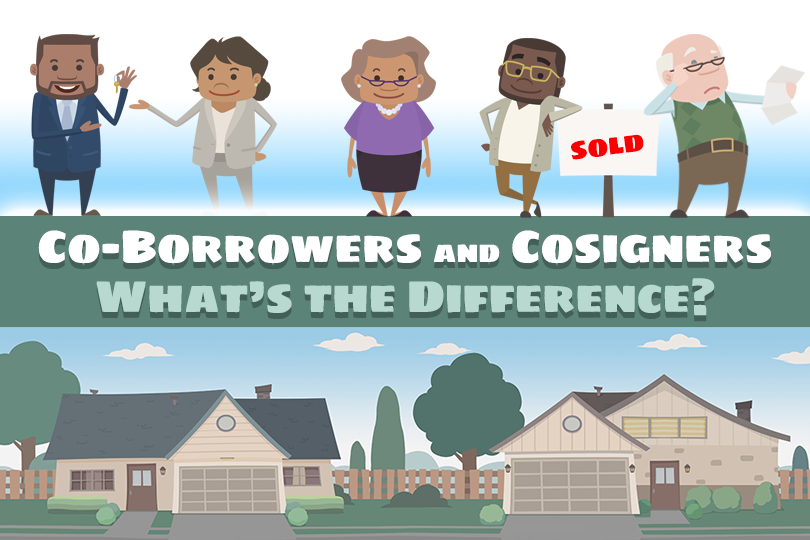Similarities and Differences Between Co-Borrowers and Cosigners
September 2, 2023
What Is a Co-Borrower?
A co-borrower is someone who is listed on the mortgage loan application alongside the primary borrower. They share equal responsibility for repaying the loan and are typically co-owners of the property being financed. During the loan application process they're required to by provide their income details, credit history, and other financial information to help meet the lender's qualification requirements.
Co-borrowers have a legal stake in the property and may have their names on the title and the mortgage documents. FHA loans allow for co-borrowers, including spouses or family members, to combine their incomes and credit profiles to qualify for a larger loan amount or to meet the lender's requirements.
What is a Cosigner?
A cosigner is not typically listed on the mortgage application but can be used in some cases to help the primary borrower qualify for an FHA loan. They're primary role is to provide additional assurance to the lender that the loan will be repaid, and do this by agreeing to assume responsibility for the loan if the primary borrower defaults.
Unlike co-borrowers, cosigners do not have a legal stake in the property being purchased. They don't own or have any rights to the property.
FHA loans are primarily underwritten based on the creditworthiness and financial situation of the primary borrower. In most cases, FHA loans require the borrower to meet the qualifications without the use of a cosigner.
The Bottom Line
The key difference is that a co-borrower is directly involved in the mortgage application, shares equal responsibility for the loan, and has a legal stake in the property, while a cosigner is not directly listed on the application, does not have ownership rights in the property, and provides additional assurance to the lender without being financially involved to the same extent as a co-borrower.
FHA loans are more commonly associated with co-borrowers rather than cosigners, but lending guidelines can vary if a family member is involved. Check with the specific lender for their policies regarding co-borrowers and cosigners on FHA loans.

FHA Loan Articles
May 20, 2025If you are buying a home with an FHA mortgage, you’ll want to learn how the Federal Housing Administration (FHA) addresses termite and other wood-destroying pest issues that might be associated with the new property. How much do you know about termites and other wood-destroying pests? You could save time and money by knowing key details ahead of time.
May 19, 2025When you get ready to commit to buying your dream home, the FHA appraisal is necessary to make certain the house you want is suitable for the loan and to know its actual fair market value. Is it in good repair? Does it have termites or other pests? Is it near a high-noise environment like an airport or bus terminal? There are many issues to consider, and the FHA appraisal process is designed to address them, as we'll explore.
May 14, 2025When you buy a home with an FHA mortgage, you must pay for both mortgage insurance and insurance to protect your property while paying on the loan. There are important nuances to these insurance policies to know before you start. What's the difference between insurance against water damage and flood insurance? That's just one example of the "hidden" expenses of buying your new home to budget for.
May 13, 2025Buying a home with an FHA mortgage means you'll need to know the FHA guidelines about the types of properties you can purchase with an FHA single-family home loan for residential purposes. How well do you understand these rules? Are you truly ready to start house hunting? We examine some key aspects of the process.
May 12, 2025FHA single-family home loans require a minimum 3.5% down payment for typical transactions. Saving for this requires planning and dedication, but it’s not impossible to save enough to make the down payment. How do people typically budget and save for this? Your financial needs and goals will play a big role in how much you decide to set aside for your new home, but here are some options to think about...







